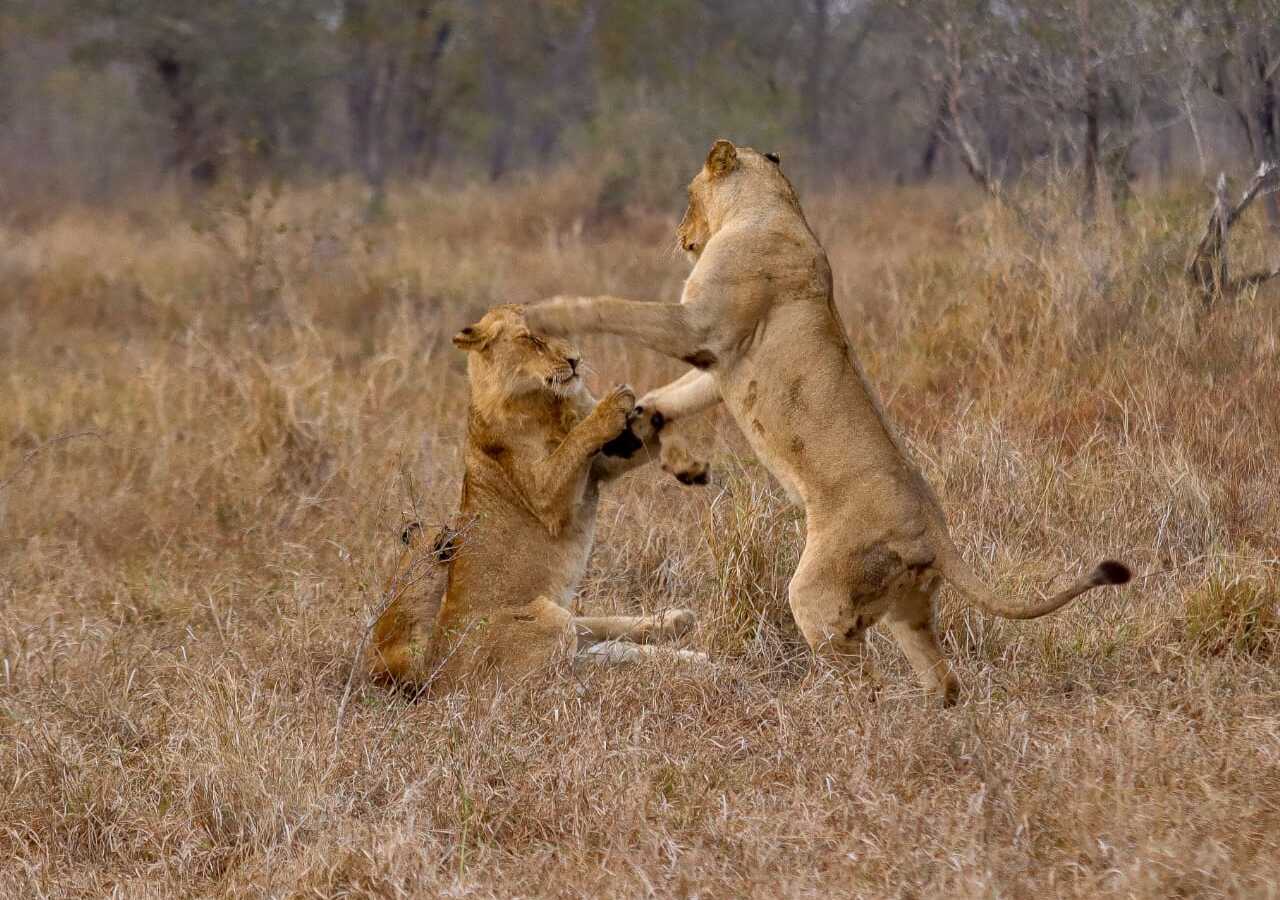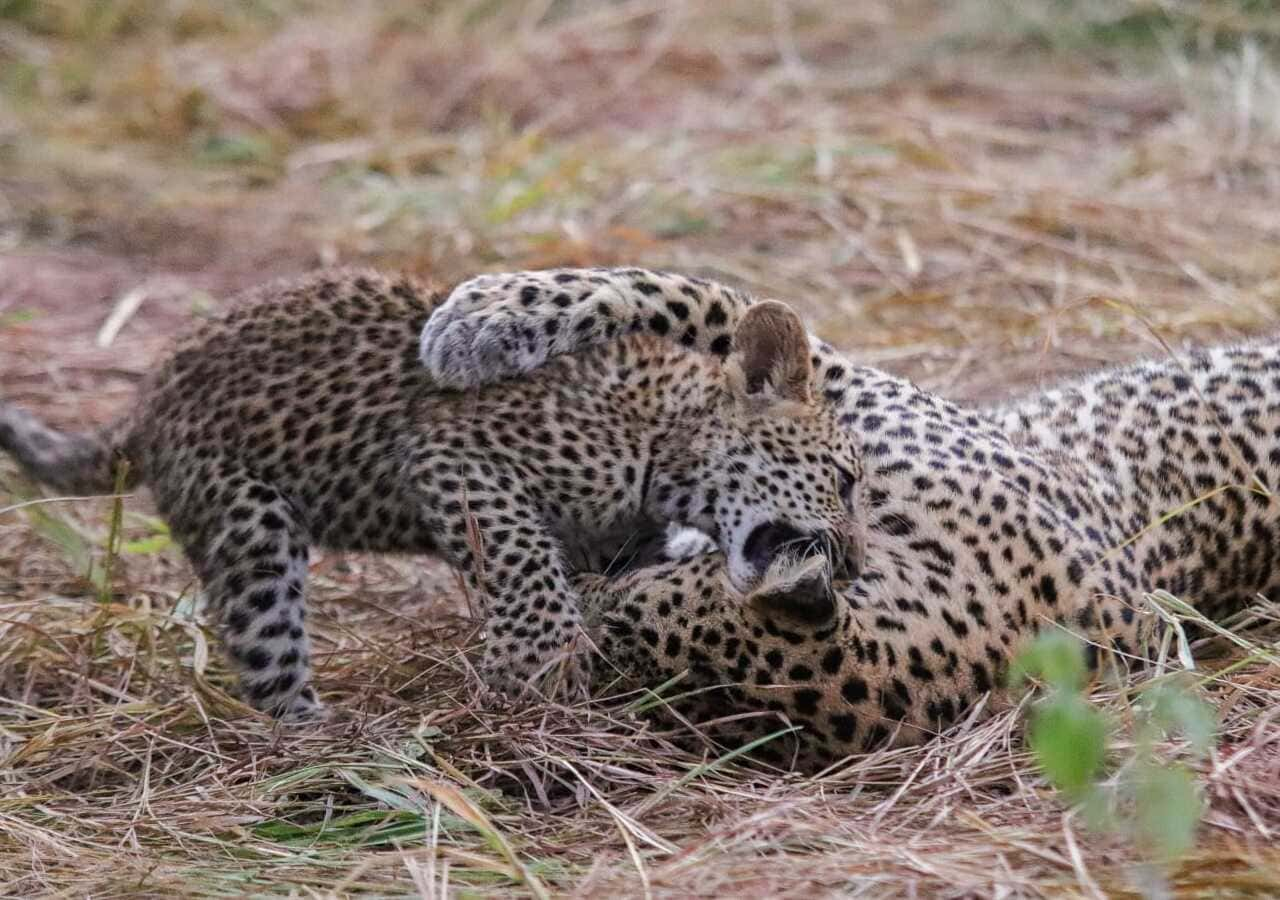
The sight of animals at play is a universally familiar one, whether it be Wild Dogs pups wrestling, leopard or lion cubs pouncing, or an impala running around chasing each other. It’s not just limited to young animals either; adults of many species engage in play as well. But what motivates these animals to indulge in such behaviour, and what, if any, are the benefits they gain from it.
Trying to figure out the reasons behind animal play behaviour opens a window into understanding animals’ mental abilities and their evolutionary development.

What Constitutes Play?
Play, as an activity, has been notoriously difficult to define scientifically. However, there are a few generally agreed-upon characteristics. Animal play tends to be spontaneous, voluntary, and rewarding to the animals themselves. It’s frequently characterised by exaggerated, repetitive behaviours that often seem purposeless. It often occurs during the early mornings, early evenings or when not immediately threatened by predators, suggesting that play might be a luxury of safety and abundance.

The Function and Benefits of Play
While play may seem quirky, curious and without purpose, there are some potential benefits to this behaviour that could explain why it’s so commonly observed in our guiding areas.
-
Physical Development and Survival Skills: Play frequently involves physical activities that can help improve strength, agility, and coordination. For predators, play-hunting can hone the techniques and skills they’ll need for survival later in life. Similarly, prey animals may engage in play behaviours that improve their evasion techniques.
-
Social Bonding and Hierarchies: In social animals, play can help establish and reinforce bonds within a group. It also provides a relatively safe environment for young animals to establish their social status and learn how to navigate the often complex hierarchies within their group.
-
Mental Development: Play may also be essential for cognitive development. It encourages problem-solving, creativity, and learning about the physical world. Animals who play often need to make rapid decisions and adjust their behaviours based on the actions of prey or their playmate.

The Role of Play in Animal Behavior and Evolution
The commonness and variety of play behaviour across so many different species suggest that it could have significant evolutionary importance. Some might say that play might be a form of practice, allowing animals to refine their survival skills. Others suggest that play might help animals become more adaptable, enabling them to adjust to new situations or changes in their environment more effectively.
While the evolutionary benefit of play remains a topic of ongoing debate, it’s clear that play is not just a light-hearted behavior. It’s a complex and vital aspect of many animals’ lives, contributing to their physical, social, and mental development.
Play behaviour in animals is a fascinating topic that sheds light on animal behaviour and social structures. Despite the challenges of defining play, we can definitely see the benefits of this behaviour, demonstrating its significance in the animal kingdom. It’s clear that play is an integral part of life for many species – not just an amusing pastime, but a crucial component of their development and survival.
Experience the wonder of wildlife up close and personal at Chitwa Chitwa. Our Expert Guides bring you right into the heart of the action to witness the playful interactions, and so much more.